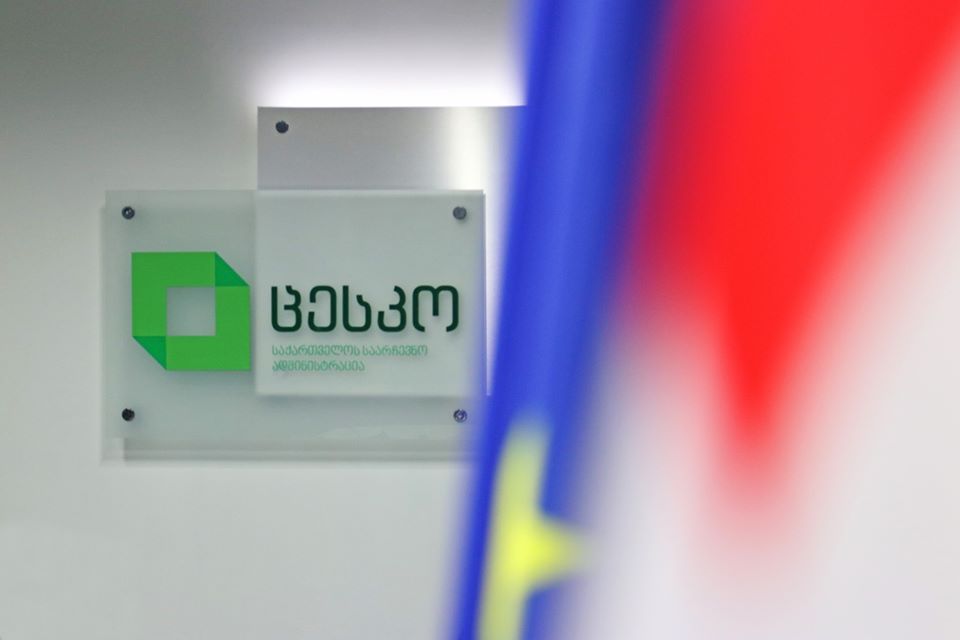On February 15, Transparency International-Georgia, a local watchdog, released a statement on the ruling party’s proposed amendments to the electoral code, which were passed by the Georgian Parliament in the second reading on February 9, saying that they violate the European Commission’s requirements, as well as OSCE/ODIHR and Venice Commission recommendations. The watchdog calls on the Parliament to reject the bill in its current form, as well as to timely elaborate and adopt amendments that would fully comply with the recommendations of the Venice Commission. TI-Georgia also calls on the President to veto the bill if it’s passed in the third reading.
The statement notes that in June 2023, the Parliament adopted the first round of amendments to the Electoral Code and the Rules of Procedure, which introduced changes to the procedure for electing the Chairman and so-called professional members of the Georgian Central Election Commission (CEC). Under the revised procedure, the Speaker of Parliament, instead of the President, nominates the chairman and seven members of the CEC for election.
The previous procedure for appointing CEC members was in line with the Charles Michel Agreement and required an agreement between the parliamentary majority and opposition on the selection of the CEC Chairperson and members.
With the new amendments, the Parliament requires 3/5 support (90 votes) on the first ballot to elect a candidate for the chairmanship/membership of the CEC. Failing that, the Parliament can retry with a simple majority (76 votes) in the next vote, with two attempts allowed. If unsuccessful twice, the authority to appoint the CEC chairman/member shifts to the President. Notably, under the draft law, the CEC chairman/member serve a full 5-year term even if elected with a lower quorum.
The amendments also abolish the post of the Deputy Chairman of the CEC, which is intended for the representative of the opposition. The authority of Giorgi Sioridze, the representative of the opposition party “Lelo”, will be terminated as soon as the law comes into force.
TI-Georgia notes that the amendments (and the inclusion of the President’s role in the selection process in the fourth stage of the process) are a mere formality and will not in practice increase the possibility of staffing the CEC with multi-party consensus, as GD has the number of MPs to elect its candidate with the 76 votes, rendering the one-time 3/5 quorum requirement moot. Also, “the abolition of the post of deputy chairman of the CEC, which was intended for the opposition, will be another step backwards and will further strengthen the ruling party’s full control over the commission,” the watchdog says.
TI-Georgia notes that despite the recommendations of the Venice Commission and the OSCE-ODIHR on the draft law adopted in the first reading, the Parliament adopted the draft law in the second reading without taking any of them into account.
As the draft law deviates from the nine conditions set by the European Commission, in particular the one on the independence and impartiality of the election administration, “the adoption of the draft law in its current form will not contribute to increasing voters’ confidence in the election administration and the holding of free, fair and competitive parliamentary elections on October 26 this year” notes TI-Georgia adding that this “may seriously hamper the process of Georgia’s EU integration.”
TI-Georgia recalls that the joint conclusion of the Venice Commission / OSCE-ODIHR suggests key recommendations for staffing the CEC.
- Require a 2/3 quorum (100 votes) for electing the CEC chairman and non-party members, with an anti-deadlock mechanism.
- Reserve simple or absolute majority voting as a last resort to resolve deadlocks.
- Extend the time between the voting procedure.
- Transfer the authority to nominate candidates from the Parliament Speaker to the President, with justifications required for nominations or refusals.
- Restore the Deputy Chairman position for the opposition.
- Shorten the term for CEC chairmen or members elected without a full quorum.
Also Read:
- 17/01/2024 – CEC 2024 Action Plan Criticized for Ignoring Emigrant Vote
- 08/05/2023 – GYLA Criticizes Georgian Dream’s Initiative to Change CEC Staffing Rules
This post is also available in: ქართული (Georgian) Русский (Russian)
